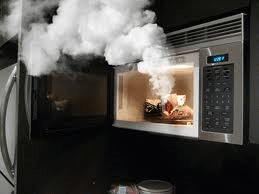False Fire Alarms
How Many Fire False Alarms Occur?
Account for nearly two out of every three fire related calls nationwide. NFPA, Fire Loss In The United States During 2013.
Impact of False Fire Alarms
- Delays response to an actual emergency.
- They can desensitize the community to actual fire incidents and lead occupants and others to ignore the alarm when it goes off.
- They make owners reluctant to use their system, exposing their home, facility or business to fire and property damage.
False Alarms Cost:
- Equipment – Equipment cost depends upon the number of units responding, but the average cost is $150-$500 per false alarm run.
Average cost per run estimate based upon apparatus cost, maintenance & fuel costs, personnel costs for a thirty minute period. This costs the fire service and communities nationwide roughly $350-$1171 million annually. Based on avg. cost per run/number of false alarms nationally - Personnel – Frequent false alarms tend to make firefighters complacent. Complacency leads to carelessness. Carelessness injures firefighters. Don’t let your firefighters down, minimize false alarms and keep them vigilant!
- Associated – Business down time occurs while the cause of an alarm is being determined. False alarms cost money and provide NO benefit to the community.
Major Causes of False Fire Alarms
- Lack of User knowledge– One of the main reasons for the lack of knowledge is, that the system is not touched on a daily basis like a security system. This leads to the questions of what to do if the system activates and how to cancel a false alarm, should one occur. New employees must be educated on the proper use of their alarm systems, and should be part of their new employee training package.
- Improper Design – A fire alarm system must be designed using the following, building occupancy, codes compliance, interior floor plan, fire load, ceiling heights, as well as any local requirements being just a few of the considerations.
- Lack of Maintenance – Lack of maintenance covers both alarm system maintenance, as well as physical site maintenance. NFPA 72 has a chapter dedicated to fire testing, maintenance and inspection. The biggest problem is that the system is out of sight and mind until you need it. Many take that as, its not broke and its not making any sounds, so don’t touch it. Alarm systems, sprinkler systems as well as any systems attached to the fire alarm need to be tested per NFPA 72 by a licensed or certified technician to ensure the system and all components of the system are operating properly.
- Wear and Tear – Just like any system, they wear out and must be serviced on a regular basis. Corrosion is one of the biggest concerns for any system. Alarms and sprinklers are subject to dust, moisture and other contaminants, that is why the maintenance schedules must be kept.
- Extreme Weather – Extreme weather causes a huge number of false alarms, and for the most part, it should not. An alarm system should not activate just because there is a thunderstorm (unless the panel receives a direct hit by lightning) or because water pressure fluctuates. Yet, we all have stories about how we tracked a thunderstorm by where alarms were going off. If at all possible, do not excuse false alarms due to weather. Alarm systems should be designed and installed, and alarm users should maintain their facilities appropriately, so that false alarms do not occur during most weather events.
- Power Failure – Power failures, as well as surges, occur on a fairly frequent basis. They should not, however, be the cause of a false alarm. If the power goes out for any reason, the alarm system’s battery backup should kick in and avoid a false alarm. Most backup batteries MUST last for a minimum of 24 hours. Remember “Low Battery” is NOT a false alarm. It is letting you know that the backup batteries for the system are below the required power level. When this happens the batteries and the charging circuit of the control panel need to be checked.
